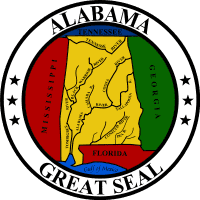Alabama Reminds Hunters to be Safe During 2013 Dove Season
Alabama DCNR 08.28.13

Dove season marks the beginning of hunting season for most hunters in the South, and the Alabama Department of Conservation and Natural Resources is reminding hunters to stay safe in the field. According to Alabama Hunter Education Coordinator Marisa Futral, dove season has some safety challenges that the other big hunting seasons like deer and turkey do not. “For example, there will be a lot of hunters in one place,” she said.” The birds come in fast and there are usually a lot of people shooting at the same time. This can increase the chance for mishaps, but those risks can be neutralized if everyone simply looks out for each other. A large number of hunters can use the same field safely if all are courteous and safety conscious.”
Futral offers these safety tips for hunters to follow:
- Stay at least 50 yards away from the next hunter in a dove field. Keep an eye out for your fellow hunters and know where they are at all times.
- Wear hunter orange (at least an orange cap) so you can be easily seen by the other hunters. Some hunters like to wear camouflage so as not to scare the doves; however, the use of camouflage is overrated for dove hunting. Birds react more to movement than they do color. It is better that your fellow hunters can see you.
- Establish your safe zone of fire before the shooting begins. Never shoot at low-flying birds or toward a road, house or livestock.
- Always wear eye and ear protection. In the off chance that you are rained on by stray pellets, you will need eye protection. If you don’t already wear eyeglasses, shooting glasses are a good investment. Simple foam earplugs will guard against hearing loss, but electronic ear protection is nice on a dove field because it allows you to hear other hunters alerting you to incoming birds.
- Don’t shoot crippled birds; pellets can ricochet off the ground and cause injury to you, others or your four-legged friends. It is easy enough to chase down a wounded bird on foot, or bring a retriever with you if possible. They make catching crippled birds much easier, and they allow you to stay at your shooting station, where other hunters are expecting you to be.
- Take plenty of water for you and your canine companion, and be alert for signs of heat distress. Alabama’s dove season often coincides with high temperatures, so hydration is important.
- Above all else, use common sense. This can be easy to forget when doves are flying and the shooting is fast. Unload your gun every now and then and take a short breather to drink water, water your dog and watch other hunters.
The Alabama Department of Conservation and Natural Resources promotes wise stewardship, management and enjoyment of Alabama’s natural resources through five divisions: Marine Police, Marine Resources, State Lands, State Parks, and Wildlife and Freshwater Fisheries. To learn more about ADCNR, visit www.outdooralabama.com.

